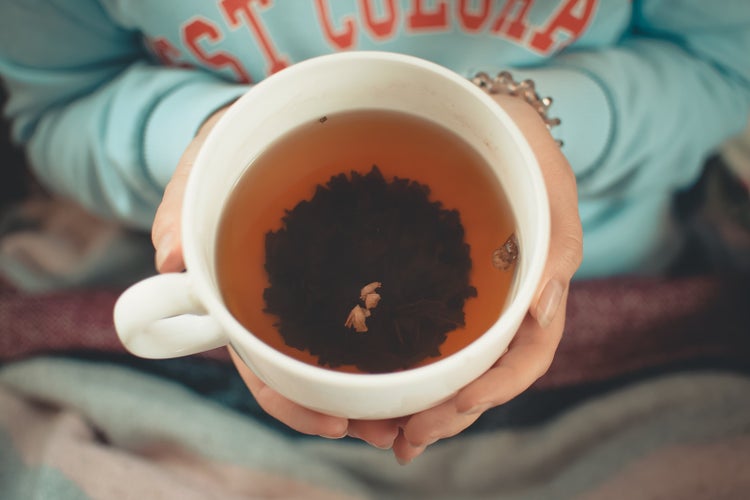News Flash: Curing the Common Cold, Drinking Tea for Better Brain Health, and Age-Related Weight Gain

Every week, we’re bringing you a roundup of the latest health and wellness news to hit the wire. This week, we look at a novel treatment that could one day put an end to rhinoviruses, an intriguing new study that finds better brain health in regular tea drinkers, and fresh insight into why people gain weight as they get older.
Could the common cold become obsolete?
Scientists think they may have found a way to stop the common cold in its tracks, according to this BBC article.
By targeting a protein found in cells that viruses use to grow, they were able to provide complete protection from cold-causing rhinoviruses. Scientists are looking to this “host-directed therapy” rather than anti-viral drugs because the more than 150 types of rhinoviruses tend to mutate easily, making them resistant to drugs.
Viruses can’t replicate on their own. Instead, they rely on infecting other cells and looting some of the parts inside to grow.
Starting with human lung cells, researchers from Stanford University and the University of California, San Francisco, used gene editing to switch off the instructions for a protein—called methyltransferase SETD3—which prevented the viruses from replicating.
Next, scientists created genetically modified mice, which did not produce this protein, and without that gene, scientists said, they became completely immune to viral infection. However, the idea is not to genetically modify humans to resist dangerous viruses but to develop a drug that can temporarily suppress this protein, providing protection during cold and flu season.
Better brain health from tea? Let’s drink to that.
A small but promising study covered by Yahoo has for the first time found evidence that drinking tea could have a positive effect on the structure and function of the brain, helping protect us against cognitive decline as we get older.
The study, led by researchers from the National University of Singapore, the University of Essex and the University of Cambridge in the U.K., followed 36 healthy participants 60 and older, tracking their tea-drinking habits since age 45.
The patients underwent neuropsychological tests and MRIs to measure their cognitive functioning and examine their brain structure, and they were quizzed on their health, lifestyle and well-being.
The findings, published in the journal Aging, showed that those who drank green tea, oolong tea or black tea at least four times a week for about 25 years had better-organized brain regions—associated with healthy cognitive function—compared to non-tea drinkers.
Just as traffic moves more quickly on a road system that is better organized, when the connections between brain regions are more structured, information can be processed more efficiently, said research leader and assistant professor Feng Lei, Ph.D. His previous research showed that daily tea drinking appears to reduce cognitive decline in older adults by 50 percent.
This is why it’s so hard to keep from gaining weight as we age
Anyone older than 40 can tell you how difficult it is to keep from gaining weight as you get older. Even with the same amount of food and exercise, the pounds can slowly creep on.
New research from Sweden, covered in the Huffington Post and published in the journal Nature Medicine, suggests that what’s causing this change is an age-related decrease in “lipid turnover”—the rate at which lipids (or fatty acids) in fat cells are removed and stored.
Scientists analyzed the fat cells of 54 men and women over an average period of 13 years. In that time, all the study participants—both those who gained and lost weight—showed decreases in lipid turnover in their fat tissue. Those who didn’t compensate for that slowdown by eating fewer calories gained weight by an average of 20 percent.
Previous studies have shown that one way to speed up the lipid turnover in the fat tissue and slow down weight gain is by exercising more. This new research supports that notion, said the authors, providing us with one more reason to hit the gym.
Photo credit: Andrii Podilnyk, Unsplash